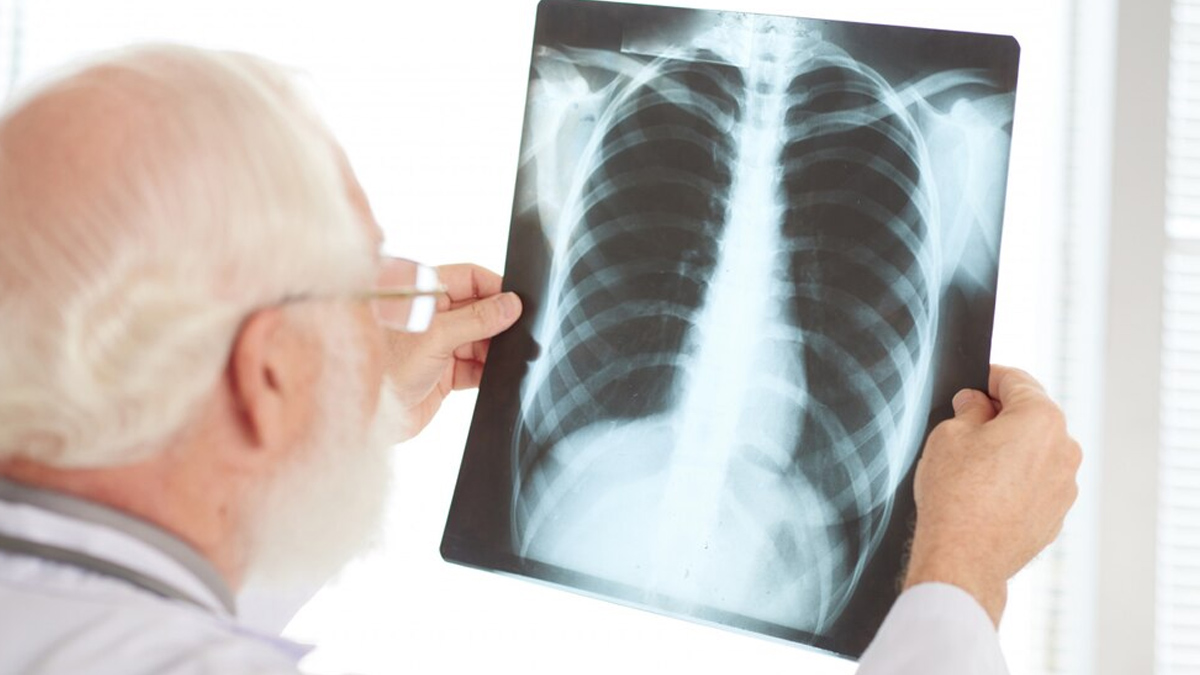
Every year, the flu, caused by the influenza virus, affects as many as 100 crore people worldwide, making it one of the most infectious respiratory illnesses, after the common cold. According to the World Health Organization (WHO), the flu vaccine is the best way to prevent infection and reduce severity.
Table of Content:-
Generally, a lot of people infected with the flu recover within a week. However, in very rare cases, the symptoms may persist and can also lead to complications like pneumonia. In order to understand this mechanism, the OnlyMyHealth team interacted with Dr Devendra Kumar Singh, Senior Consultant and HOD - Respiratory Medicine, Sharda Care—Health City, Greater Noida.
Also Read: Is It Possible To Get The Flu Twice In A Season? Expert Answers
Can Flu Progress To Pneumonia?

According to Dr Singh, flu can in fact progress to pneumonia, especially in vulnerable individuals such as the elderly, young children, and those with weakened immune systems.
“The flu virus can damage the respiratory system, making it harder for the lungs to clear mucus and fight off infections. This creates an opportunity for bacteria to enter the lungs, leading to secondary bacterial pneumonia,” he explained.
While the flu is a viral infection, pneumonia can be caused by a virus, bacteria, and fungi, and it can affect one or both lungs.
“In some cases, the flu virus itself can directly infect the lungs, causing viral pneumonia. Both types result in lung inflammation and fluid buildup, making it difficult for the body to absorb oxygen,” the doctor added, emphasising the need for prompt medical attention, as pneumonia can be severe and potentially life-threatening.
Warning Signs To Note

It is important to address flu symptoms that worsen rather than getting better, as it can be a sign of pneumonia. Some of the common warning signs include:
- Shortness of breath or difficulty breathing
- Chest pain or tightness
- Persistent cough with thick, discoloured mucus
- High fever that doesn’t subside
- Chills, extreme fatigue, or confusion (especially in older adults)
- Rapid or shallow breathing
Who Is At Risk?
Certain groups are more likely to develop pneumonia from the flu. These include:
- Adults over 65 and children under five
- People with chronic conditions like diabetes, heart disease, lung disease, or asthma
- People with weakened immune systems due to conditions like HIV/AIDS, cancer treatment, or organ transplants
- Pregnant women
- Smokers or former smokers
How To Prevent Flu-Related Pneumonia

If you are at a greater risk of severe complications from flu (older adults, children, and people with weakened immune systems), here are some precautions to take:
- Get the annual flu vaccine to protect against common flu strains.
- Practise good hygiene, such as frequent handwashing and avoiding close contact with sick individuals.
- Consider antiviral medications if prescribed by a doctor, especially if you are at high risk.
- Maintain a healthy lifestyle with a balanced diet, regular exercise, and sufficient rest to boost immunity.
- Manage chronic health conditions and seek medical care promptly if flu symptoms develop.
Treatment For Flu-Related Pneumonia
If you develop pneumonia, treatment usually depends on the cause. Some of the common treatments include:
- Antiviral medications to reduce flu severity and complications
- Antibiotics in the case of bacterial pneumonia
- Self-care practices include rest, fluids, pain relievers, and oxygen therapy if needed.
- Hospitalisation in severe cases, particularly if breathing difficulties or respiratory failure occur.
Conclusion
Flu is a common respiratory infection that usually resolves in 7-10 days. However, in vulnerable groups, the symptoms can be persistent, increasing the risk of severity and other respiratory complications. While it is rare, severe flu can sometimes progress to pneumonia, which is why careful monitoring is key, and prompt medical action should be taken if warning signs are noticeable.
Also watch this video
How we keep this article up to date:
We work with experts and keep a close eye on the latest in health and wellness. Whenever there is a new research or helpful information, we update our articles with accurate and useful advice.
Current Version